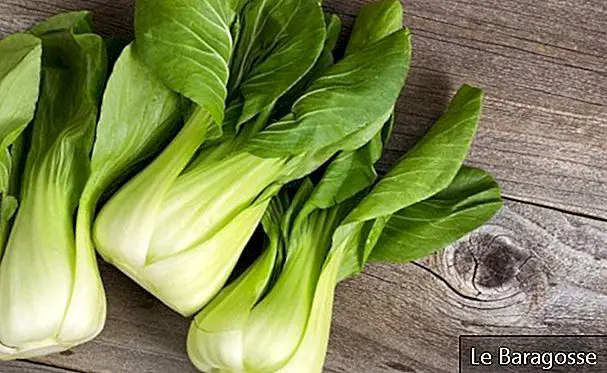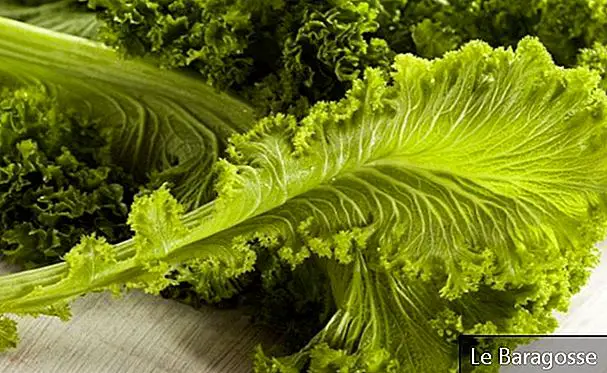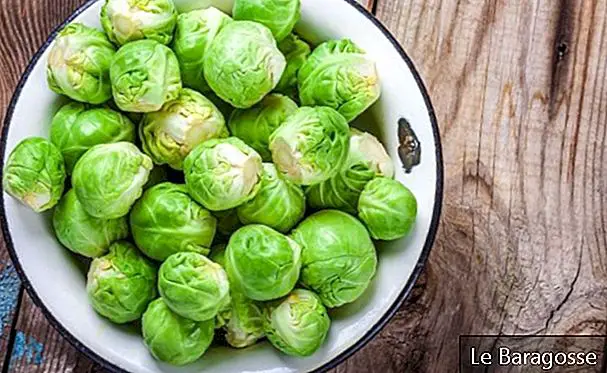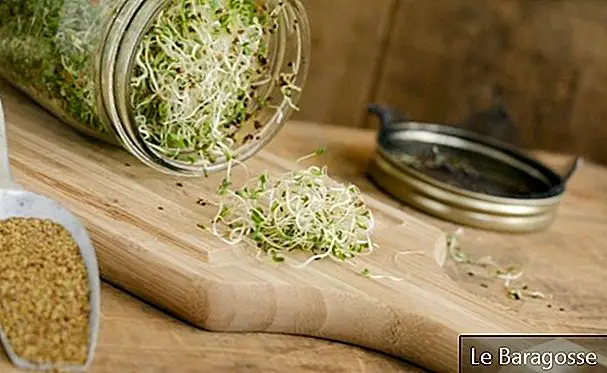
If you are a vegetarian, you should be more than tired of hearing tips and criticism from those who don't know much about this lifestyle. Even if it's out of genuine curiosity, unsolicited remarks end up pissing you off.
They are hints about being fresh, about not imagining living this way or even asking what you eat after all. And of course, we can't forget the classic question that every vegetarian is practically obliged to answer: "What about proteins?"
Although animal foods are known for their high protein content, some vegetables are also able to provide this nutrient to our bodies, and this is interesting for both vegetarians and omnivores.
Learn what are the top 10 vegetable choices to put on your plate and increase your daily protein intake, with the respective nutrient amounts per 100 grams of the vegetable:
10. Pak-choi: 1.5 grams

Not so common in Brazil, pak-choi (also known as Chinese cabbage, Chinese cabbage, chigensai or bok choy) offers 1 gram of protein per cup (70 grams) or 1.5 grams per 100 grams of plant.
Read also: Foods that fight breast cancer
For those who have not tried it, pak-choi has a taste that resembles that of chard, but with less intensity. The white, fleshier part is a little bit more bitter than the rest of the plant.
9. Cauliflower: 2 grams

Like broccoli, cauliflower provides a large amount of protein compared to the number of calories: one cup (100 grams) contains 2 grams of protein and only 25 calories.
Also, does this vegetable offer antioxidant, anti-inflammatory and anticancer properties, especially when consumed raw? Heat can destroy the substance responsible for these effects.
8. Asparagus: 2.2 grams

Great for steaks or as a main ingredient in creams, asparagus offers 2.9 grams of protein per cup (134 grams), or 2.2 grams of the nutrient per 100 grams of the vegetable.
Asparagus is very versatile and can be served boiled, grilled, boiled, steamed or fried, and can be a salad ingredient or a delicious accompaniment.
Read also: How to add healthy foods to children's menu
7. Watercress: 2.3 grams

One cup of watercress (34 grams) provides 0.8 grams of protein, while 100 grams of this vegetable contains 2.3 grams of the nutrient. Proteins are so relevant in watercress composition that they correspond to 50% of the calories provided by the plant.
In addition, watercress provides good amounts of B vitamins, calcium, manganese, potassium, vitamin A and vitamin C.
6. Cabbage: 2.5 grams

One cup of 26 grams of kale provides 0.9 grams of protein, equivalent to 2.5 grams of nutrient per 100 grams of leaves. Proteins correspond to 20% of the caloric value of this plant.
Much consumed in Brazil sautéed as an accompaniment to feijoada or as an ingredient in broth, cabbage has only 11 calories per cup and provides 230% of the recommended daily intake of vitamin K.
5. Broccoli: 2.6 grams

Broccoli are the true superheroes of the food world: one cup of this vegetable (91 grams) offers 2.6 grams of protein, including all the essential amino acids. Also, does it offer folates, manganese, potassium, and vitamins C and K? with only 31 calories.
Read also: Detox Soup: Burn Fat Without Much Effort
Scientific research has shown that broccoli provides antioxidant and anti-inflammatory benefits, reduces the risk of cancer, aids in lowering blood cholesterol levels and stimulates liver function.
4. Chestnut Mustard: 2.7 grams

The leaves of chestnut mustard are similar to kale, although its flavor, as its name implies, is more drawn to mustard. A 56 gram cup of the plant provides 1.5 grams of protein (2.7 grams of the nutrient every 100 grams).
These leaves can be eaten boiled, boiled, sautéed or even raw in the form of salad. Proteins correspond to 25% of their caloric value.
3. Spinach: 2.9 grams

Popeye was right to eat spinach to get tough: one cup of this vegetable (30 grams) provides 0.9 grams of protein, equivalent to 2.9 grams of nutrient in 100 grams of the plant. Protein accounts for 30% of the calories in this food.
In addition, by devouring cans of spinach, sailor Popeye still benefited from the antioxidant and anti-inflammatory components.
Read also: Advantages of Including Sprouts in Food
2. Brussels sprouts: 3 grams

In just one cup (88 grams) of Brussels sprouts, do you find 3 grams of protein? or 3.4 grams of the nutrient in 100 grams of the vegetable. Nineteen percent of the calories in this food come from its protein content.
Brussels sprouts look like a small cabbage and in addition to protein, it also offers a large amount of fiber, folate, manganese, potassium, iron, calcium and vitamins A, B6, C and K.
1. Alfalfa sprouts: 4 grams

Our great champions, alfalfa sprouts force 1.3 grams of protein for every cup of the vegetable you consume, or 4 grams of the nutrient in 100 grams of the plant. Protein accounts for 42% of the calories in sprouts.
In addition to their nutritional content, alfalfa sprouts provide B vitamins, iron, magnesium, phosphorus, zinc, copper and vitamins K and C.
Are any of these vegetables already part of your daily diet? For sure, we all have many reasons to make our plate much greener with these foods full of protein and other beneficial substances for our bodies.
The good news is that even if you don't like one option very much, there are still nine. Good choice!
Vegetarian Nutrition | Getting Enough Protein | Ask the Doctor (April 2024)
- food
- 1,230
















